117 have author last names that start with R have author last names that start with R

In Without History, José Rabasa contrasts indigenous accounts of the Acteal massacre and other events with state attempts to frame the past, control subaltern populations, and legitimatize its own authority. Rabasa offers new interpretations of the meaning of history from indigenous perspectives and develops the concept of a communal temporality that is not limited by time, but rather exists within the individual, community, and culture as a living knowledge that links both past and present.
Due to a disconnection between indigenous and state accounts as well as the lack of archival materials (many of which were destroyed by missionaries), the indigenous remain outside of, or without, history, according to most of Western discourse. The continued practice of redefining native history perpetuates the subalternization of that history, and maintains the specter of fabrication over reality.
Rabasa recalls the works of Marx, Lenin, and Gramsci, as well as contemporary south Asian subalternists Ranajit Guha and Dipesh Chakrabarty, among others. He incorporates their conceptions of communality, insurgency, resistance to hegemonic governments, and the creation of autonomous spaces as strategies employed by indigenous groups around the globe, but goes further in defining these strategies as millennial and deeply rooted in Mesoamerican antiquity. For Rabasa, these methods and the continuum of ancient indigenous consciousness are evidenced in present day events such as the Zapatista insurrection.
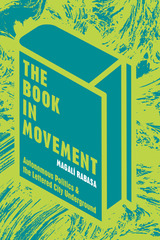
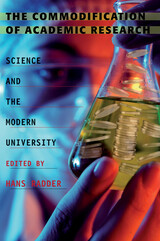
Selling science has become a common practice in contemporary universities. This commodification of academia pervades many aspects of higher education, including research, teaching, and administration. As such, it raises significant philosophical, political, and moral challenges. This volume offers the first book-length analysis of this disturbing trend from a philosophical perspective and presents views by scholars of philosophy of science, social and political philosophy, and research ethics.
The epistemic and moral responsibilities of universities, whether for-profit or nonprofit, are examined from several philosophical standpoints. The contributors discuss the pertinent epistemological and methodological questions, the sociopolitical issues of the organization of science, the tensions between commodified practices and the ideal of “science for the public good,” and the role of governmental regulation and personal ethical behavior. In order to counter coercive and corruptive influences of academic commodification, the contributors consider alternatives to commodified research and offer practical recommendations for establishing appropriate research standards, methodologies and institutional arrangements, and a corresponding normative ethos.
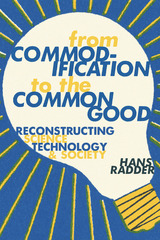
The commodification of science—often identified with commercialization, or the selling of expertise and research results and the “capitalization of knowledge” in academia and beyond—has been investigated as a threat to the autonomy of science and academic culture and criticized for undermining the social responsibility of modern science. In From Commodification to the Common Good, Hans Radder revisits the commodification of the sciences from a philosophical perspective to focus instead on a potential alternative, the notion of public-interest science. Scientific knowledge, he argues, constitutes a common good only if it serves those affected by the issues at stake, irrespective of commercial gain. Scrutinizing the theory and practices of scientific and technological patenting, Radder challenges the legitimacy of commercial monopolies and the private appropriation and exploitation of research results. His book invites us to reevaluate established laws and to question doctrines and practices that may impede or even prohibit scientific research and social progress so that we might achieve real and significant transformations in service of the common good.
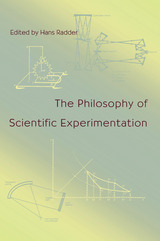
Since the late 1980s, the neglect of experiment by philosophers and historians of science has been replaced by a keen interest in the subject. In this volume, a number of prominent philosophers of experiment directly address basic theoretical questions, develop existing philosophical accounts, and offer novel perspectives on the subject, rather than rely exclusively on historical cases of experimental practice.
Each essay examines one or more of six interconnected themes that run throughout the collection: the philosophical implications of actively and intentionally interfering with the material world while conducting experiments; issues of interpretation regarding causality; the link between science and technology; the role of theory in experimentation involving material and causal intervention; the impact of modeling and computer simulation on experimentation; and the philosophical implications of the design, operation, and use of scientific instruments.

Observation and conceptual interpretation constitute the two major ways through which human beings engage the world. The World Observed/The World Conceived presents an innovative analysis of the nature and role of observation and conceptualization. While these two actions are often treated as separate, Hans Radder shows that they are inherently interconnected-that materially realized observational processes are always conceptually interpreted and that the meaning of concepts depends on the way they structure observational processes and abstract from them. He examines the role of human action and conceptualization in realizing observational processes and develops a detailed theory of the relationship between observation, abstraction, and the meaning of concepts.
The World Observed/The World Conceived will prove useful to many areas of scholarly study including ontology, epistemology, philosophy of language, philosophy of science, science studies, and cognitive science.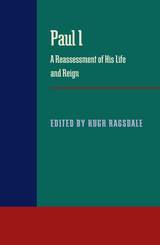
This book offers the first book-length English language biography of Russian emperor Paul I (1754–1801), since a 1913 translation. Most of the essays have been written expressly for this volume. They examine Paul’s education, his mental pathology, his administrative aims, curious relations with the knights of Malta and with Bonaparte, and his struggles with the threatening ideas emanating from the French Revolution. There is also a provocative new view of the conspiracy that took Paul’s life.
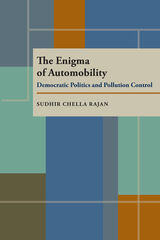
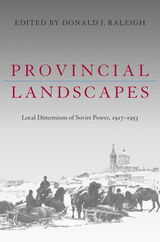
The closed nature of the Soviet Union, combined with the West’s intellectual paradigm of Communist totalitarianism prior to the 1970s, have led to a one-dimensional view of Soviet history, both in Russia and the West. The opening of former Soviet archives allows historians to explore a broad array of critical issues at the local level. Provincial Landscapes is the first publication to begin filling this enormous gap in scholarship on the Soviet Union, pointing the way to additional work that will certainly force major reevaluations of the nation’s history.
Focusing on the years between the Revolution and Stalin’s death, the contributors to this volume address a variety of topics, including how political events and social engineering played themselves out at the local level; the construction of Bolshevik identities, including class, gender, ethnicity, and place; the Soviet cultural project; and the hybridization of Soviet cultural forms. In showing how the local is related to the larger society, the essays decenter standard narratives of Soviet history, enrich the understanding of major events and turning points in that history, and provide a context for the highly visible socio-political and cultural role individual Russian provinces began to play after the breakup of the Soviet Union.
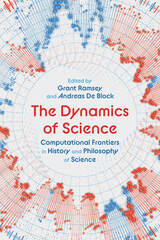
Millions of scientific articles are published each year, making it difficult to stay abreast of advances within even the smallest subdisciplines. Traditional approaches to the study of science, such as the history and philosophy of science, involve closely reading a relatively small set of journal articles. And yet many questions benefit from casting a wider net: Is most scientific change gradual or revolutionary? What are the key sources of scientific novelty? Over the past several decades, a massive effort to digitize the academic literature and equip computers with algorithms that can distantly read and analyze a digital database has taken us one step closer to answering these questions. The Dynamics of Science brings together a diverse array of contributors to examine the largely unexplored computational frontiers of history and philosophy of science. Together, they reveal how tools and data from automated textual analysis, or machine “reading,” combined with methods and models from game theory and cultural evolutionary theory, can begin to answer fundamental questions about the nature and history of science.

Set against the backdrop of the Obama presidency, Julian Randall's Refuse documents a young biracial man's journey through the mythos of Blackness, Latinidad, family, sexuality and a hostile American landscape. Mapping the relationship between father and son caught in a lineage of grief and inherited Black trauma, Randall conjures reflections from mythical figures such as Icarus, Narcissus and the absent Frank Ocean. Not merely a story of the wound but the salve, Refuse is a poetry debut that accepts that every song must end before walking confidently into the next music

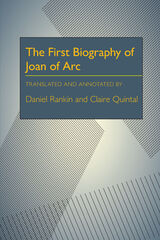
This edition includes not only the fully translated manuscript of the biography and chronicle of Joan of Arc, but expert commentary and explanation by Rankin and Quintal, who have also retained the literary tone of the sixteenth-century text. An appendix offers the first text in English about Joan's close friend, Ambrose de Loré.
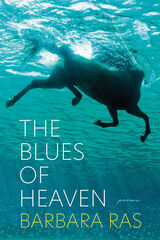
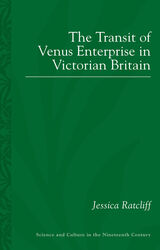

Less than one hundred years ago, Diplodocus carnegii—named after industrialist and philanthropist Andrew Carnegie—was the most famous dinosaur on the planet. The most complete fossil skeleton unearthed to date, and one of the largest dinosaurs ever discovered, Diplodocus was displayed in a dozen museums around the world and viewed by millions of people.
Bone Wars explains how a fossil unearthed in the badlands of Wyoming in 1899 helped give birth to the public’s fascination with prehistoric beasts. Rea also traces the evolution of scientific thought regarding dinosaurs, and reveals the double-crosses and behind-the-scenes deals that marked the early years of bone hunting.
With the help of letters found in scattered archives, Tom Rea recreates a remarkable story of hubris, hope, and turn-of-the-century science. He focuses on the roles of five men: Wyoming fossil hunter Bill Reed; paleontologists Jacob Wortman—in charge of the expedition that discovered Mr. Carnegie’s dinosaur—and John Bell Hatcher; William Holland, imperious director of the recently founded Carnegie Museum; and Carnegie himself, smitten with the colossal animals after reading a newspaper story in the New York Journal and Advertiser.
What emerges is the picture of an era reminiscent of today: technology advancing by leaps and bounds; the press happy to sensationalize anything that turned up; huge amounts of capital ending up in the hands of a small number of people; and some devoted individuals placing honest research above personal gain.
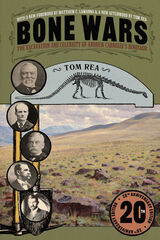
With a New Foreword by Matthew C. Lamanna and a New Afterword by Tom Rea
Less than one hundred years ago, Diplodocus carnegii—named after industrialist and philanthropist Andrew Carnegie—was the most famous dinosaur on the planet. The most complete fossil skeleton unearthed to date, and one of the largest dinosaurs ever discovered, Diplodocus was displayed in a dozen museums around the world and viewed by millions of people. Bone Wars explains how a fossil unearthed in the badlands of Wyoming in 1899 helped give birth to the public’s fascination with prehistoric beasts. Rea also traces the evolution of scientific thought regarding dinosaurs and reveals the double-crosses and behind-the-scenes deals that marked the early years of bone hunting. With the help of letters found in scattered archives, Tom Rea recreates a remarkable story of hubris, hope, and turn-of-the-century science. He focuses on the roles of five men: Wyoming fossil hunter Bill Reed; paleontologists Jacob Wortman—in charge of the expedition that discovered Carnegie’s dinosaur—and John Bell Hatcher; William Holland, imperious director of the recently founded Carnegie Museum; and Carnegie himself, smitten with the colossal animals after reading a story in the New York Journal and Advertiser. What emerges is the picture of an era reminiscent of today: technology advancing by leaps and bounds; the press happy to sensationalize anything that turned up; huge amounts of capital ending up in the hands of a small number of people; and some devoted individuals placing honest research above personal gain.

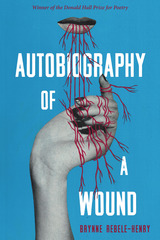
Winner of the AWP 2017 Donald Hall Prize for Poetry
In ancient fertility carvings, artists would drill holes into the woman’s body to signify penetrability, which is the basis of Autobiography of a Wound: allowing those wounds and puncture marks to speak through the fertility figures. The wounds are chronicled through letters and poems addressed to F (F stands for the fertility carvings themselves, which are being addressed as one unified deity), and A (Aphrodite, who is being referenced as a general deity of womanhood, a figurine that reappears throughout the poems, and a symbol that is referenced or portrayed in almost every fertility figurine or carving). Autobiography of a Wound reconstructs the narrative surrounding female pathos and the idea of the hysteric girl.

Finalist, 2023 Lammy Award in Lesbian Poetry
Prelude delineates the gay female experience through a poetic reconstruction of the girlhood of Catherine of Siena, a Catholic saint who lived in 1300s Italy and disobeyed her parents by refusing marriage to devote her life to God. Through a historical lens, Brynne Rebele-Henry examines the erasure of gay women’s lives and offers a perspective of medieval queer girlhood while considering themes such as violence, desire, and the lesbian body.

Reed compares how each prefecture addresses pollution control, public housing, and access to the best high school education, and concludes that despite some inefficiency in the system, the results are usually very good. Japan's prefectures are important sources of governmental flexibility and responsiveness.

Common misconceptions about Japan begin with the notion that it is a “small” country (it's actually lager than Great Britain, Germany or Italy) and end with pronouncements that the Japanese think differently and have different values-they do things differently because that's the way they are.
Steven Reed takes on the task of demystifying Japanese culture and behavior. Through examples that are familiar to an American audience and his own personal encounters with the Japanese, he argues that the apparent oddity of Japanese behavior flows quite naturally from certain objective conditions that are different from those in the United States.
Mystical allegations about national character are less useful for understanding a foreign culture than a close look at specific situations and conditions. Two aspects of the Japanese economy have particularly baffled Americans: that Japanese workers have “permanent employment” and that the Japanese government cooperates with big business. Reed explains these phenomena in common sense terms. He shows how they developed historically, why they continue, and why they helped produce economic growth. He concludes that these practices are not as different from what happens in the United States as they may appear.
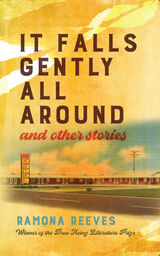
Winner, 2023 Sergio Troncoso Award for Best Book of Fiction, Texas Institute of Letters
Happiness and connection prove fickle in this debut collection of eleven linked stories introducing Babbie and Donnie. She is a thrice-divorced former call girl, and he is a sobriety-challenged trucker turned yogi. Along with their community of exes, in-laws, and coworkers, Babbie and Donnie share a longing to reforge their lives, a task easier said than done in Mobile, Alabama, which bears its own share of tainted history. Despite overwhelming challenges and the ever-looming specters of status, race, and class, the characters in It Falls Gently All Around and Other Stories strive for versions of the American dream through modern and often unconventional means. Told with humor and honesty, these stories remind us not only about the fallibility of being human and the resistance of some to change but also about finding redemption in unlikely places.


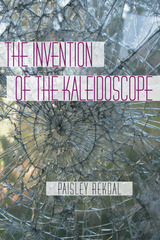

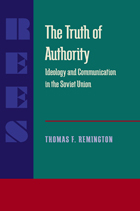


In these original essays, widely respected experts analyze the personal psychologies and public belief systems of the individuals and nations involved in the Gulf War - from George Bush and Saddam Hussein to the peoples of the United States, Israel, and Arab countries. Approaching the events of 1990-1991 from the perspectives of psychology, history, mass communications, and political science, these scholars examine the dynamic relationship of events, behavior, and perceptions.
Part I deals with the psychological and political origins of the war; part II focuses on George Bush, Saddam Hussein, and the nature of their leadership and judgement; part III discusses the battle for public perceptions and beliefs waged by both sides; part IV analyzes the results of that battle as revealed by the understanding of the U.S., Israeli, and Arab publics; and part V deals with the war’s consequences. A postscript by Stanley Renshon covers military actions in the Gulf in late 1992 and early 1993.
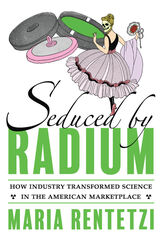
The discovery of radium by Marie and Pierre Curie in 1898 eventually led to a craze for radium products in the 1920s until their widespread use proved lethal for consumers, patients, and medical practitioners alike. Radium infiltrated American culture, Maria Rentetzi reveals, not only because of its potential to treat cancer but because it was transformed from a scientific object into a familiar, desirable commodity. She explores how Standard Chemical Company in Canonsburg, Pennsylvania—the first successful commercial producer of radium in the United States—aggressively promoted the benefits of radium therapy and its curative properties as part of a lucrative business strategy. Over-the-counter products, from fertilizers to paints and cosmetics to tonics and suppositories, inspired the same level of trust in consumers as a revolutionary pharmaceutical. The radium industry in the United States marketed commodities like Liquid Sunshine and Elixir of Youth at a time when using this new chemical element in the laboratory, in the hospital, in private clinics, and in commercial settings remained largely free of regulation. Rentetzi shows us how marketing campaigns targeted individually to men and women affected not only how they consumed these products of science but also how that science was understood and how it contributed to the formation of ideas about gender. Seduced by Radium ultimately reveals how innovative advertising techniques and seductive, state-of-the-art packaging made radium a routine part of American life, shaping scientific knowledge about it and the identities of those who consumed it.
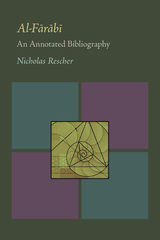


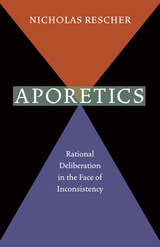
Rescher's in-depth examination reveals how aporetic inconsistency can be managed through a plausibility analysis that breaks the chain of inconsistency at its weakest link by deploying right-of-way precedence based on considerations of cognitive centrality. Thus while involvement with cognitive conflicts and inconsistencies are pervasive in human thought, aporetic analysis can provide an effective means of damage control.


This novel approach to epistemological discourse explains the complex but crucial role that systematization plays-not just for the organization of what we know, but also for its validation. Cognitive Harmony argues for a new conception of the process philosophers generally call induction.
Relying on the root definition of harmony, a coherent unification of component parts (systemic integrity) in such a way that the final object can successfully accomplish what it was meant to do (evaluative positivity), Rescher discusses the role of harmony in cognitive contexts, the history of cognitive harmony, and the various features it has in producing human knowledge. The book ends on the issue of philosophy and the sort of harmony required of philosophical systems.

Nicholas Rescher tackles the major questions of philosophical inquiry, pondering the nature of truth and existence. In the authoritative voice and calculated manner that we’ve come to expect from this distinguished philosopher, Rescher argues that the development of knowledge is a practice, pursued by humans because we have a need for its products. This pragmatic approach satisfies our innate urge as humans to make sense of our surroundings.
Taking his discussion down to the level of particular details, and addressing such topics as inductive validation, hypostatization fallacies, and counterfactual reasoning, Rescher abandons abstract generalities in favor of concrete specifics. For example, philosophers usually insist that to reason logically from a counterfactual, we must imagine a possible world in which the statement is fact. But Rescher argues that there’s no need to attempt to accept the facts of a world outside our cognition in order to reason from them. He shows us how we can use our own natural system of prioritizing, our own understanding of the fundamental, to resolve the inconsistencies in such statements as, “If the Eiffel Tower were in Manhattan, then it would be in New York State.”
In using dozens of real-world examples such as these, and in arguing in his characteristically succinct style, Rescher casts light on a wide variety of concrete issues in the classical theory of knowledge, and reassures us along the way that the inherent limitations on our knowledge are no cause for distress. In pragmatic theory and inquiry, we must accept that the best we can do is good enough, because we only have a certain (albeit large) set of tools and conceptualizations available to us.
A unique synthesis, this endeavor into pragmatic epistemology will be of interest to scholars and students of philosophy and cognitive science.

Epistemic logic is the branch of philosophical thought that seeks to formalize the discourse about knowledge. Its object is to articulate and clarify the general principles of reasoning about claims to and attributions of knowledge. This comprehensive survey of the topic offers the first systematic account of the subject as it has developed in the journal literature over recent decades.
Rescher gives an overview of the discipline by setting out the general principles for reasoning about such matters as propositional knowledge and interrogative knowledge. Aimed at graduate students and specialists, Epistemic Logic elucidates both Rescher's pragmatic view of knowledge and the field in general.
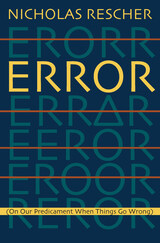
In Error, Nicholas Rescher presents a fresh analysis of the occurrence, causality, and consequences of error in human thought, action, and evaluation. Rescher maintains that error-avoidance and truth-achievement are distinct but equally important factors for rational inquiry, and that error is inherent in the human cognitive process (to err is human). He defines three main categories of error: cognitive (failure to realize truths); practical (failure related to the objective of an action); and axiological (failure in evaluation), and articulates the factors that contribute to each. His discussion also provides a historical perspective on the treatment of error in Greek philosophy, and by later thinkers such as Aquinas, Descartes, Spinoza, Leibniz, James, Royce, Moore, and Russell.
Error is an important reexamination of the significance of error to the fields of philosophical anthropology, epistemology, ontology, and theology. As Rescher’s study argues, truth and error are inexorably intertwined—one cannot exist without the other. Error is an unavoidable occurrence in the cognitive process—without missteps on the path to truth, truth itself cannot be attained. The risk of error is inherent in the quest for truth.


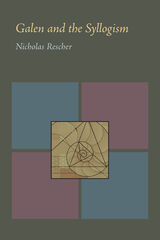
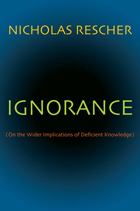
Historically, there has been great deliberation about the limits of human knowledge. Isaac Newton, recognizing his own shortcomings, once described himself as “a boy standing on the seashore . . . whilst the great ocean of truth lay all underscored before me.”
In Ignorance, Nicholas Rescher presents a broad-ranging study that examines the manifestations, consequences, and occasional benefits of ignorance in areas of philosophy, scientific endeavor, and ordinary life. Citing philosophers, theologians, and scientists from Socrates to Steven Hawking, Rescher seeks to uncover the factors that hinder our cognition.
Rescher categorizes ignorance as ontologically grounded (rooted in acts of nature-erasure, chaos, and chance-that prevent fact determination), or epistemically grounded (the inadequacy of our information-securing resources). He then defines the basis of ignorance: inaccessible data; statistical fogs; secreted information; past data that have left no trace; future discoveries; future contingencies; vagrant predicates; and superior intelligences. Such impediments set limits to inquiry and mean that while we can always extend our existing knowledge-variability here is infinite-there are things that we will never know.
Cognitive finitude also hinders our ability to assimilate more than a certain number of facts. We may acquire additional information, but lack the facility to interpret it. More information does not always increase knowledge; it may point us further down the path toward an erroneous conclusion. In light of these deficiencies, Rescher looks to the role of computers in solving problems and expanding our knowledge base, but finds limits to their reasoning capacity.
As Rescher's comprehensive study concludes, ignorance itself is a fertile topic for knowledge, and recognizing the boundaries of our comprehension is where wisdom begins.
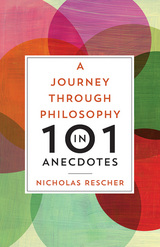


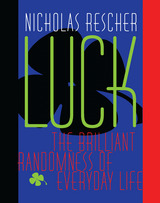
Luck touches us all. "Why me?" we complain when things go wrong—though seldom when things go right. But although luck has a firm hold on all our lives, we seldom reflect on it in a cogent, concerted way.
In Luck, one of our most eminent philosophers offers a realistic view of the nature and operation of luck to help us come to sensible terms with life in a chaotic world. Differentiating luck from fate (inexorable destiny) and fortune (mere chance), Nicholas Rescher weaves a colorful tapestry of historical examples, from the use of lots in the Old and New Testaments to Thomas Gataker’s treatise of 1619 on the great English lottery of 1612, from casino gambling to playing the stock market. Because we are creatures of limited knowledge who do and must make decisions in the light of incomplete information, Rescher argues, we are inevitably at the mercy of luck. It behooves us to learn more about it.

Gottfried Wilhelm Leibniz (1646-1716) possessed one of history's great minds. The German philosopher, mathematician, and logician invented (independently of Sir Isaac Newton) calculus. His metaphysics bequeathed a set of problems and approaches that drove the course of Western philosophy, from Kant's eighteenth century until the present day.
For over fifty years, the study of Leibniz has been a consistent passion for distinguished philosopher Nicholas Rescher. On Leibniz offers eleven of his essays, written with signature clarity, exploring the aspects of Leibniz's work and life that still resonate in the discipline of philosophy.
Rescher's essays are snapshots of Leibniz, lucidly drawn case studies that explain the fundamentals of his ontology: the theory of possible worlds, the world's contingency, space-time frameworks, and intermonadic relationships.
Several illuminating pieces reveal Leibniz as a substantial contributor to theories of knowledge. Discussions of his epistemology and methodology, its relationship to John Maynard Keynes and Talmudic scholarship, broaden the traditional view of Leibniz as a uniquely metaphysical thinker.
Rescher also explores, in four absorbing biographical essays, Leibniz's scholarly development and professional career in historical context. As a "philosopher courtier" to the Hanoverian court, Leibniz was associated with the leading intellectuals and politicians of his era, including Spinoza, Huygens, Newton, Queen Sophie Charlotte, and Czar Peter the Great.
A concluding essay holds up Leibniz's mode of philosophy as a role model for today's scholars. Rescher argues that many current problems can be effectively addressed with principles of process philosophy along lines inspired by Leibniz's monadology. On Leibniz is essential reading for students of Leibniz and Rescher alike.

On Leibniz examines many aspects of Leibniz’s work and life. This expanded edition adds new chapters that explore Leibniz’s revolutionary deciphering machine; his theoretical interest in cryptography and its ties to algebra; his thoughts on eternal recurrence theory; his rebuttal of the thesis of improvability in the world and cosmos; and an overview of American scholarship on Leibniz.
Other chapters reveal Leibniz as a substantial contributor to theories of knowledge. Discussions of his epistemology and methodology, its relationship to John Maynard Keynes and Talmudic scholarship, broaden the traditional view of Leibniz. Rescher also views Leibniz’s scholarly development and professional career in historical context. As a “philosopher courtier” to the Hanoverian court, Leibniz was associated with the leading intellectuals and politicians of his era, including Spinoza, Huygens, Newton, Queen Sophie Charlotte, and Tsar Peter the Great.
Rescher extrapolates the fundamentals of Leibniz’s ontology: the theory of possible worlds, the world’s contingency, space-time frameworks, and intermonadic relationships. In conclusion, Rescher positions Leibniz as a philosophical role model for today’s scholars. He argues that many current problems can be effectively addressed with principles of process philosophy inspired by Leibniz’s system of monadology.

Among his many topics, Rescher discusses knowledge and the unattainablity of absolutes, skepticism and its self-defeating nature, the limits of science vs. the limits of cognition, refuting reality as mind-independent, and idealism and divining our role in nature. He considers the universe and intelligence as the product of intelligent design, science and religion as non-conflicting and purposeful pursuits, and determinism and other fallacies surrounding the concept of free will. Rescher views morality in its hierarchal structure, its applicability to human coexistence, and its ontological commitment to the enhancement of value for ourselves and our world. He examines questions of authority and the problem of judging past actions or knowledge by present standards. Overall, he argues for philosophy as an unavoidable tool for rational, cogent responses to large questions.
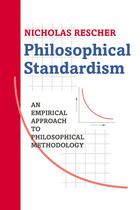

Process Philosophy surveys the basic issues and controversies surrounding the philosophical approach known as “process philosophy.” Process philosophy views temporality, activity, and change as the cardinal factors for our understanding of the real—process has priority over product, both ontologically and epistemically. Rescher examines the movement’s historical origins, reflecting a major line of thought in the work of such philosophers as Heracleitus, Leibniz, Bergson, Peirce, William James, and especially A. N. Whitehead.

An examination of philosophical realism from the standpoint of pragmatic epistemology, this book addresses the core idea of Rescher's work in epistemology: that functional and pragmatic concerns exert a controlling influence on the conduct of rational inquiry and on the ways in which we can and should regard its products.
Pragmatism is widely regarded as a philosophical approach that stands at odds with realism, but Rescher takes a very different approach. He views pragmatism as a realistic position that can be developed from a pragmatic point of view, and utilizes a number of case studies to augment his position. Throughout, he shows how the pragmatic and purposive setting of our putative knowledge of the real world proves to be crucial for the constituting and also for the constitution of our knowledge.

The disagreement of philosophers is notorious. In this book, Rescher develops a theory that accounts for this conflict and shows how the basis for philosophical disagreement roots in divergent 'cognitive values'-values regarding matters such as importance, centrality, and priority. In light of this analysis, Rescher maintains that, despite this inevitable discord, a skeptical or indifferentist reaction to traditional philosophy is not warranted, seeing that genuine value-conflicts are at issue. He argues that philosophy is an important and worthwhile enterprise, notwithstanding its inability to achieve rationally constrained consensus on the issues. Given the nature of the enterprise, consensus is not a realistic goal, and failure to achieve it is not a defect. Accordingly, Rescher argues against the revisionist views proposed by Richard Rorty and Robert Nozick. His discussions are devoted to providing a clear view of why philosophical problems arise and how philosophers address them.
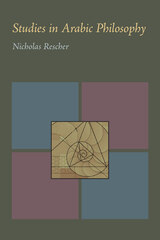
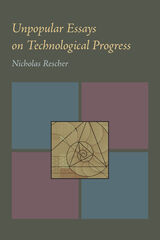
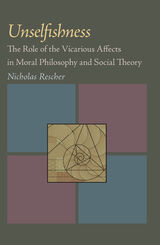


G.W. Leibniz’s Monadology, one of the most important pieces of the Leibniz corpus, is at once one of the great classics of modern philosophy and one of its most puzzling productions. Because the essay is written in so condensed and compact a fashion, for almost three centuries it has baffled and beguiled those who read it for the first time.
Nicholas Rescher accompanies the text of the Monadology section-by-section with relevant excerpts from some of Leibniz’s widely scattered discussions of the matters at issue. The result serves a dual purpose of providing a commentary of the <I>Monadology</I> by Leibniz himself, while at the same time supplying an exposition of his philosophy using the Monadology as an outline.
The book contains all of the materials that even the most careful study of this could text could require: a detailed overview of the philosophical background of the work and of its bibliographic ramifications; a presentation of the original French text together with a new, closely faithful English translation; a selection of other relevant Leibniz texts; and a detailed commentary. Rescher also provides a survey of Leibniz’s use of analogies and three separate indices of key terms and expressions, Leibniz’s French terminology, and citations.
Rescher’s edition of the Monadology presents Leibniz’s ideas faithfully, accurately, and accessibly, making it especially valuable to scholars and students alike.

"The aim of poetry (and the higher kind of thriller) is to be unexpected and memorable. So a poem about death might treat it in a way that combines the bizarre and the banal: the Other Side as some kind of institution—a creepy hospital, an officious hotel or retirement home. Martha Rhodes takes such an approach in 'Ambassadors to the Dead,' from her abrupt, unsettling, artfully distorted, indelible new book Mother Quiet. Blending the matter-of-fact with the surreal, as a way of comprehending the stunning, final reality, Rhodes is an inheritor of Emily Dickinson's many poems on the same subject."
—Robert Pinsky, Washington Post
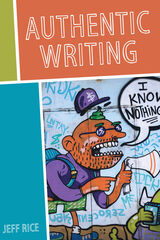
In Authentic Writing, Jeff Rice uses this question to trace a position regarding critique, the role of the scholar, the role of the personal in scholarship, the banal as subject matter, and the idea of authenticity. He explores authenticity as a writing issue, a rhetorical issue, a consumption issue, a culture issue, and an ideological issue. Rather than arguing for a more authentic state or practice, Rice examines the rhetorical features of authenticity in order to expand the focus of scholarship.

Rice outlines three distinct ways that the rhetoric of publics counteracts development: through injury claims, memory claims, and equivalence claims. In injury claims, rhetors frame themselves as victims in a dispute. Memory claims allow rhetors to anchor themselves to an older, deliberative space, rather than to a newly evolving one. Equivalence claims see the benefits on both sides of an issue, and here rhetors effectively become nonactors.
Rice provides case studies of development disputes that place the reader in the middle of real-life controversies and evidence her theories of claims-based public rhetorics. She finds that these methods comprise the most common (though not exclusive) vernacular surrounding development and shows how each is often counterproductive to its own goals. Rice further demonstrates that these claims create a particular role or public subjectivity grounded in one’s own feelings, which serves to distance publics from each other and the issues at hand.
Rice argues that rhetoricians have a duty to transform current patterns of public development discourse so that all individuals may engage in matters of crisis. She articulates its sustainability as both a goal and future disciplinary challenge of rhetorical studies and offers tools and methodologies toward that end.

This book provides a comprehensive analysis of federal programs for the aging, and their origins. Landmark federal legislation affecting the aging was enacted in the 1930s, and the intervening decades have witnesses a dramatic increase in the number and scope of programs. But far from constituting a cohesive national policy for the elderly, the many programs reflect the particular political and social conditions surrounding their origin and implementation. The multiplicity and complexity of resources and services available make achieving even a reasonable grasp of this field extremely difficult. This study offers a coherent and readable summary of this important area of federal legislation.

In Race and the Chilean Miracle, Richards examines conflicts between Mapuche indigenous people and state and private actors over natural resources, territorial claims, and collective rights in the Araucanía region. Through ground-level fieldwork, extensive interviews with local Mapuche and Chileans, and analysis of contemporary race and governance theory, Richards exposes the ways that local, regional, and transnational realities are shaped by systemic racism in the context of neoliberal multiculturalism..
Richards demonstrates how state programs and policies run counter to Mapuche claims for autonomy and cultural recognition. The Mapuche, whose ancestral lands have been appropriated for timber and farming, have been branded as terrorists for their activism and sometimes-violent responses to state and private sector interventions. Through their interviews, many Mapuche cite the perpetuation of colonialism under the guise of development projects, multicultural policies, and assimilationist narratives. Many Chilean locals and political elites see the continued defiance of the Mapuche in their tenacious connection to the land, resistance to integration, and insistence on their rights as a people. These diametrically opposed worldviews form the basis of the racial dichotomy that continues to pervade Chilean society.
In her study, Richards traces systemic racism that follows both a top-down path (global, state, and regional) as well as a bottom-up one (local agencies and actors), detailing their historic roots. Richards also describes potential positive outcomes in the form of intercultural coalitions or indigenous autonomy. Her compelling analysis offers new perspectives on indigenous rights, race, and neoliberal multiculturalism in Latin America and globally.

Born in Panama in 1910, Maida Springer grew up in Harlem. While still a young girl she learned firsthand of the bleak employment options available to African American females of her time. After one employer closed his garment shop and ran off with the workers’ wages in the midst of the Depression, Springer joined Local 22 of the International Ladies’ Garment Workers’ Union.
This proved to be the first step in a remarkable advancement through the ranks of labor leadership positions that were typically dominated by white men. Ultimately, Springer became one of the AFL-CIO’s most important envoys to emerging African nations, earning her the nickname "Mama Maida" throughout that continent.
In this brilliantly edited collection of interviews, Yevette Richards allows Springer to tell her story in her own words. The result is a rare glimpse into the private struggles and thoughts behind one of the twentieth century’s most fascinating international labor leaders.

Richards explores the ways in which pan-Africanism, racism, sexism and anti-Communism affected Springer’s political development, her labor activism, and her relationship with labor leaders in the AFL-CIO, the International Confederation of Free Trade Unions (ICFTU), and in African unions. Springer’s life experiences and work reveal the complex nature of black struggles for equality and justice. A strong supporter of both the AFL-CIO and the ICFTU, Springer nonetheless recognized that both organizations were fraught with racism, sexism, and ethnocentrism. She also understood that charges of Communism were often used as a way to thwart African American demands for social justice. As an African-American, she found herself in the unenviable position of promoting to Africans the ideals of American democracy from which she was excluded from fully enjoying.
Richards’s biography of Maida Springer uniquely connects pan-Africanism, national and international labor relations, the Cold War, and African American, labor, women’s, and civil rights histories. In addition to documenting Springer’s role in international labor relations, the biography provides a larger view of a whole range of political leaders and social movements. Maida Springer is a stirring biography that spans the fields of women studies, African American studies, and labor history.

Richardson examines the conduct of those involved in town and school, the economic dependence of the former on the latter, and the opposition to higher rates to pay for sanitary improvement by a local ratepayer "shopocracy." He compares the sanitary state of the community with others nearby, and Uppingham School with comparable schools of that era. Improvement was often determined by business considerations rather than medical judgments, and local personalities and events frequently drove national policy in practice. This study illuminates wider themes in Victorian public medicine, including the difficulty of diagnosing typhoid before breakthroughs in bacteriological research, the problems local officialdom faced in implementing reform, and the length of time it took London ideas and practice to filter into rural areas.
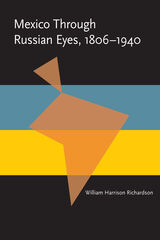
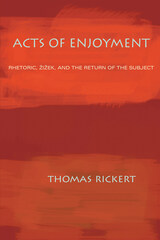
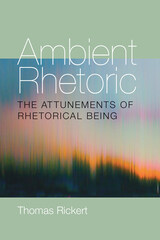
Rickert develops the concept of ambience in order to engage all of the elements that comprise the ecologies in which we exist. Culling from Martin Heidegger’s hermeneutical phenomenology in Being and Time, Rickert finds the basis for ambience in Heidegger’s assertion that humans do not exist in a vacuum; there is a constant and fluid relation to the material, informational, and emotional spaces in which they dwell. Hence, humans are not the exclusive actors in the rhetorical equation; agency can be found in innumerable things, objects, and spaces. As Rickert asserts, it is only after we become attuned to these influences that rhetoric can make a first step toward sufficiency.
Rickert also recalls the foundational Greek philosophical concepts of kairos (time), chora (space/place), and periechon (surroundings) and cites their repurposing by modern and postmodern thinkers as “informational scaffolding” for how we reason, feel, and act. He discusses contemporary theory in cognitive science, rhetoric, and object-oriented philosophy to expand his argument for the essentiality of ambience to the field of rhetoric. Rickert then examines works of ambient music that incorporate natural and artificial sound, spaces, and technologies, finding them to be exemplary of a more fully resonant and experiential media.
In his preface, Rickert compares ambience to the fermenting of wine—how its distinctive flavor can be traced to innumerable factors, including sun, soil, water, region, and grape variety. The environment and company with whom it’s consumed further enhance the taste experience. And so it should be with rhetoric—to be considered among all of its influences. As Rickert demonstrates, the larger world that we inhabit (and that inhabits us) must be fully embraced if we are to advance as beings and rhetors within it.
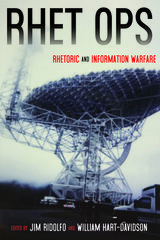
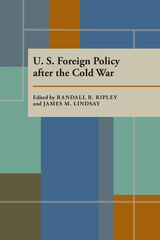
The cold war came to a grinding halt during the astounding developments of 1989-1991. The Berlin Wall fell, Eastern European countries freed themselves from Soviet domination, and the Soviet Union itself disintegrated after witnessing a failed coup presumably aimed at restoring a communist dictatorship. Suddenly the “evil empire” was no more, and U.S. foreign policy was forever changed. This volume explores the revisions to a variety of bureaucratic institutions and policy areas in the wake of these political upheavals.
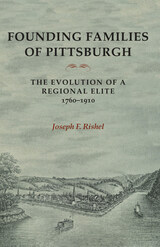
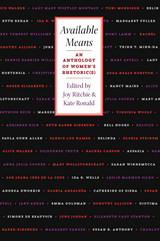
Sappho’s prediction came true; fragments of work by the earliest woman writer in Western literate history have in fact survived into the twenty-first century. But not without peril. Sappho’s writing remains only in fragments, partly due to the passage of time, but mostly as a result of systematic efforts to silence women’s voices. Sappho’s hopeful boast captures the mission of this anthology: to gather together women engaged in the art of persuasion—across differences of race, class, sexual orientation, historical and physical locations—in order to remember that the rhetorical tradition indeed includes them.
Available Means offers seventy women rhetoricians—from ancient Greece to the twenty-first century—a room of their own for the first time. Editors Joy Ritchie and Kate Ronald do so in the feminist tradition of recovering a previously unarticulated canon of women’s rhetoric. Women whose voices are central to such scholarship are included here, such as Aspasia (a contemporary of Plato’s), Margery Kempe, Margaret Fuller, and Ida B. Wells. Added are influential works on what it means to write as a woman—by Virginia Woolf, Adrienne Rich, Nancy Mairs, Alice Walker, and Hélène Cixous. Public “manifestos” on the rights of women by Hortensia, Mary Astell, Maria Stewart, Sarah and Angelina Grimké, Anna Julia Cooper, Margaret Sanger, and Audre Lorde also join the discourse.
But Available Means searches for rhetorical tradition in less obvious places, too. Letters, journals, speeches, newspaper columns, diaries, meditations, and a fable (Rachel Carson’s introduction to Silent Spring) also find places in this room. Such unconventional documents challenge traditional notions of invention, arrangement, style, and delivery, and blur the boundaries between public and private discourse. Included, too, are writers whose voices have not been heard in any tradition. Ritchie and Ronald seek to “unsettle” as they expand the women’s rhetorical canon.
Arranged chronologically, Available Means is designed as a classroom text that will allow students to hear women speaking to each other across centuries, and to see how women have added new places from which arguments can be made. Each selection is accompanied by an extensive headnote, which sets the reading in context. The breadth of material will allow students to ask such questions as “How might we define women’s rhetoric? How have women used and subverted traditional rhetoric?”
A topical index at the end of the book provides teachers a guide through the rhetorical riches. Available Means will be an invaluable text for rhetoric courses of all levels, as well as for women’s studies courses.
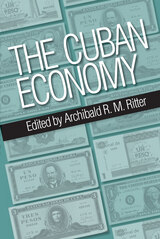
Cuba faced an economic meltdown of catastrophic proportions in the early 1990s when covert subsidies from the former Soviet Union disappeared. Policies instituted by the island republic's government to handle the worst problems have had inconsistent results.
Opening the economy to foreign enterprise has resulted in positive growth in tourism and nickel and cigar exports. However, remnants of the older economy, including the sugar and biotechnological industries, have only experienced a decrease in capital and importance. Basic educational and health services have been maintained surprisingly well, but the standard of living is still far below the highs of the 1980s. With contributions from many leading Cuba scholars, <I>The Cuban Economy</I> offers not only an analysis of the economy since 1990, but also a look towards future prospects.
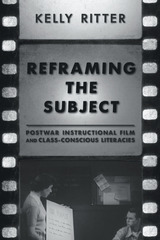
In this study, Kelly Ritter offers an extensive theoretical analysis of the alliance of the value systems inherent in mental hygiene films (class-based ideals, democracy, patriotism) with writing education—an alliance that continues today by way of the mass digital technologies used in teaching online. She further details the larger material and cultural forces at work in the production of these films behind the scenes and their effects on education trends.
Through her examination of literacy theory, instructional films, policy documents, and textbooks of the late 1940s to mid–1950s, Ritter demonstrates a reliance on pedagogies that emphasize institutional ideologies and correctness over epistemic complexity and de-emphasize the role of the student in his or her own learning process. To Ritter, these practices are sustained in today’s pedagogies and media that create a false promise of social uplift through formalized education, instead often resulting in negative material consequences.
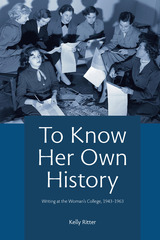
To Know Her Own History chronicles the evolution of writing programs at a landmark Southern women’s college during the postwar period. Kelly Ritter finds that despite its conservative Southern culture and vocational roots, the Woman’s College of the University of North Carolina was a unique setting where advanced writing programs and creativity flourished long before these trends emerged nationally.
Ritter profiles the history of the Woman’s College, first as a normal school, where women trained as teachers with an emphasis on composition and analytical writing, then as a liberal arts college. She compares the burgeoning writing program here to those of the Seven Sisters (Wellesley, Smith, Radcliffe, Barnard, Vassar, Bryn Mawr, and Mount Holyoke) and to elite all-male universities, to show the singular progressivism of the Woman’s College. Ritter presents lively student writing samples from the early postwar period to reveal a blurring of the boundaries between “creative” and “expository” styles.
By midcentury, a quantum shift toward creative writing changed administrators’ valuation of composition courses and staff at the Woman’s College. An intensive process of curricular revisions, modeled after Harvard’s “Redbook” plan, was proposed and rejected in 1951, as the college stood by its unique curricula and singular values. Ritter follows the plight of individual instructors of creative writing and composition, showing how their compensation and standing were made disproportionate by the shifting position of expository writing in relation to creative writing. Despite this unsettled period, the Woman’s College continued to gain in stature, and by 1964 it became a prize acquisition of the University of North Carolina system.
Ritter’s study demonstrates the value of local histories to uncover undocumented advancements in writing education, offering insights into the political, cultural, and social conditions that influenced learning and methodologies at “marginalized” schools such as the Woman’s College.
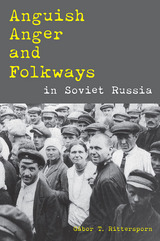
For Rittersporn, citizens’ conscious and unreflected actions at all levels of society defined a distinct Soviet universe. Terror, faith, disillusionment, evasion, folk customs, revolt, and confusion about regime goals and the individual’s relation to them were all integral to the development of that universe and the culture it engendered. Through a meticulous reading of primary documents and materials uncovered in numerous archives located in Russia and Germany, Rittersporn identifies three related responses—anguish, anger, and folkways—to the pressures people in all walks of life encountered, and shows how these responses in turn altered the way the system operated.
Rittersporn finds that the leadership generated widespread anguish by its inability to understand and correct the reasons for the system’s persistent political and economic dysfunctions. Rather than locate the sources of these problems in their own presuppositions and administrative methods, leaders attributed them to omnipresent conspiracy and wrecking, which they tried to extirpate through terror.
He shows how the unrelenting pursuit of enemies exacerbated systemic failures and contributed to administrative breakdowns and social dissatisfaction. Anger resulted as the populace reacted to the notable gap between the promise of a self-governing egalitarian society and the actual experience of daily existence under the heavy hand of the party-state. Those who had interiorized systemic values demanded a return to what they took for the original Bolshevik project, while others sought an outlet for their frustrations in destructive or self-destructive behavior.
In reaction to the system's pressure, citizens instinctively developed strategies of noncompliance and accommodation. A detailed examination of these folkways enables Rittersporn to identify and describe the mechanisms and spaces intuitively created by officials and ordinary citizens to evade the regime's dictates or to find a modus vivendi with them. Citizens and officials alike employed folkways to facilitate work, avoid tasks, advance careers, augment their incomes, display loyalty, enjoy life’s pleasures, and simply to survive. Through his research, Rittersporn uncovers a fascinating world consisting of peasant stratagems and subterfuges, underground financial institutions, falsified Supreme Court documents, and associations devoted to peculiar sexual practices.
As Rittersporn shows, popular and elite responses and tactics deepened the regime’s ineffectiveness and set its modernization project off down unintended paths. Trapped in a web of behavioral patterns and social representations that eluded the understanding of both conservatives and reformers, the Soviet system entered a cycle of self-defeat where leaders and led exercised less and less control over the course of events. In the end, a new system emerged that neither the establishment nor the rest of society could foresee.
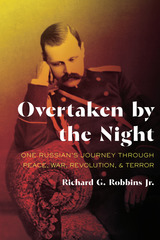
Highly readable, Overtaken by the Night captivates on many levels. It is a gripping biography of a man of many faces, a behind-the-curtain look at the inner workings of Russian politics at its highest levels, and also an engrossing account of ordinary Russians engulfed by swiftly moving political and social currents.
Dzhunkovsky served as a confidant in the tsar’s imperial court and as governor in Moscow province during and after the 1905 revolution. In 1913 he became the empire’s security chief, determined to reform the practices of the dreaded tsarist political police, the Okhrana. Dismissed from office for daring to investigate and warn Tsar Nicholas about Rasputin, his path led him into combat on the battlefields of the First World War. A natural leader of men, he held his units together even as revolution spilled into the trenches. Arrested as a counterrevolutionary in 1918 and imprisoned until 1921, Dzhunkovsky avoided execution thanks to an outpouring of public support and his reputation for treating revolutionaries with fairness and dignity. Although later he consulted for the Stalinist secret police, he was tried and executed in 1938 as an enemy of the people.
Based on Dzhunkovsky’s detailed memoirs and extensive archival research, Overtaken by the Night paints a fascinating picture of an important figure. Dzhunkovsky's incredible life reveals much about a long and crucial period in Russian history. It is a story of Russia in revolution reminiscent of the fictional Doctor Zhivago, but perhaps even more extraordinary for being true.
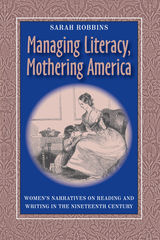
Managing Literacy, Mothering America accomplishes two monumental tasks. It identifies and defines a previously unstudied genre, the domestic literacy narrative, and provides a pioneering cultural history of this genre from the early days of the United States through the turn of the twentieth century.
Domestic literacy narratives often feature scenes that depict women-mostly middle-class mothers-teaching those in their care to read, write, and discuss literature, with the goal of promoting civic participation. These narratives characterize literature as a source of shared knowledge and social improvement. Authors of these works, which were circulated in a broad range of publication venues, imagined their readers as contributing to the ongoing formation of an idealized American community.
At the center of the genre's history are authors such as Lydia Sigourney, Catharine Maria Sedgwick, and Frances Harper, who viewed their writing as a form of teaching for the public good. But in her wide-ranging and interdisciplinary investigation, Robbins demonstrates that a long line of women writers created domestic literacy narratives, which proved to be highly responsive to shifts in educational agendas and political issues throughout the nineteenth century and beyond.
Robbins offers close readings of texts ranging from the 1790s to the 1920s. These include influential British precursors to the genre and early twentieth-century narratives by women missionaries that have been previously undervalued by cultural historians. She examines texts by prominent authors that have received little critical attention to date-such as Lydia Maria Child's Good Wives--and provides fresh context when discussing the well-known works of the period. For example, she reads Uncle Tom's Cabin in relation to Harriet Beecher Stowe's education and experience as a teacher.
Managing Literacy, Mothering America is a groundbreaking exploration of nineteenth-century U.S. culture, viewed through the lens of a literary practice that promoted women's public influence on social issues and agendas.

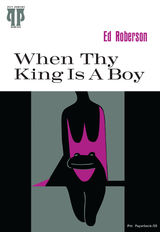

Summer afternoons at Forbes Field, playoff Sundays with the Steelers, winter nights at the Igloo cheering for Mario and the Penguins: Pittsburgh Sports captures all that and more. With stories from sports fans, historians, and former athletes, Pittsburgh Sports mixes personal experiences with team histories to capture the full range of what it means to be a sports fan—in Pittsburgh, or, by extension, anywhere.
A book that can be read cover-to-cover, or in bits and pieces, Pittsburgh Sports includes chapters on the ill-fated Pittsburgh Pipers, who won the American Basketball Association’s first championship, then folded four years later; the Pittsburgh Crawfords and the Homestead Grays, perennial Negro League powerhouses; Johnny Unitas, Joe Namath, Jim Kelly, Joe Montana, Dan Marino, and other legends of western Pennsylvania high school football; boxing’s illustrious past in the Iron City; football reminiscences by a former Steelers punter; and the ups and downs of the Pittsburgh Pirates.

On February 5, 2006, the Pittsburgh Steelers joined the ranks of the elite teams in National Football League history, celebrating their fifth Super Bowl victory. From an unspectacular 7-5 start, to completing the greatest playoff run ever, to the fairy tale ending of Jerome Bettis's Hall of Fame career and the vindication of Bill Cowher's coaching tenure, the 2005 season was not only one for the thumb, but “truly one for the ages.”
One for the Thumb is a collection of the best writing about the fabled franchise by local and national sportswriters, and former players. It covers the team's history from Art Rooney Sr.'s purchase of the NFL franchise in 1933 for $2,500 to their Super Bowl XL victory. From their frustrating early days as the Pirates, Steagles, and Card-Pitts, through their four Super Bowl wins in the 1970s, to the fateful day in 2004 when they selected Ben Roethlisberger as the eleventh overall pick in the draft, One for the Thumb captures the essence of the team whose identity is forever linked with the spirit of the hardworking, blue-collar city it represents.
From immortals Bobby Layne, Ernie Stautner, and John Henry Johnson, to Chuck Noll, Terry Bradshaw, Mean Joe Greene, Rocky Bleier, and Neil O'Donnell, to current greats Troy Polamalu, Jerome Bettis, Ben Roethlisberger, and Bill Cowher, One for the Thumb is the definitive anthology of the Pittsburgh Steelers--a must-read for all fans of the team and the game of football.

Selected by Joy Harjo
Karankawa is a collection that explores some of the ways in which we (re)construct our personal histories. Rich in family narratives, myths, and creation stories, these are poems that investigate passage—dying, coming out, transforming, being born—as well as the gaps that also reside in our stories, for, as Rocha suggests, the opportunity to create myths is provided by great silences. Much like the Karankawa Indians whose history works in omissions, Karankawa reconfigures such spaces, engaging with the burden and freedom of memory in order to rework and recontextualize private and public mythologies. First and last, these are poems that honor our griefs and desires, for they keep alive the very things we cannot possess.
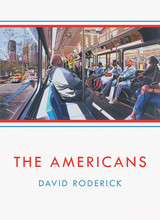
Winner of the 2014 Julie Suk Award for the best poetry book published by an independent press.
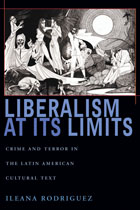
Focusing on Guatemala, Colombia, and Mexico, Rodríguez shows how standard liberal models fail to account for new forms of violence and exploitation, which in fact follow from specific clashes between liberal ideology and local practice. Looking at these tensions within the ostensibly well-ordered state, Rodríguez exposes how the misunderstanding and misuse of liberal principles are behind realities of political turmoil, and questions whether liberalism is in fact an ideology sufficient to empower populations and transition nation-states into democratic roles in the global order.
In this way, Liberalism at Its Limits offers a critical examination of the forced fitting of liberal models to Latin American nations and reasserts cross-cultural communication as crucial to grasping the true link between varying systems of value and politics.
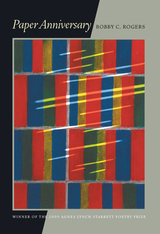
"There is something in American poetry that might be called the book of the small town or, equally, the tale of the good family; or, if you like, the American Grafitti Suite. Poems that discover life's bonuses in new love, wise parents, old books, venerable nature, and the mysteries of all that endures in the face of the viciousness no life escapes--are, well, worth the wait. That’s how I feel about Paper Anniversary. His poems are full of the best news, the kind the soul, as W. C. Williams attested, can get nowhere better than in the life of the lively mind. I think any reader will find this an auspicious, welcome arrival."
--Dave Smith
"In his superb Paper Anniversary, Bobby Rogers is a near mystic of the domestic because love of family and landscape is connected to the eternal--and if not the eternal, our longing for love to last. Rogers is a meditative poet, then, one who knows language and memory are inadequate to hold love in an abiding present: 'But ownership is the last lie/we tell ourselves--nothing goes unshared.' So his moving, widely thoughtful, and commodious poems are full of joy tinged with elegy."
--Andrew Hudgins
Bobby C. Rogers is professor of English at Union University in Jackson, Tennessee. His poems have appeared in the Southern Review, the Georgia Review, Image, Shenandoah, Puerto del Sol, and numerous other magazines. He is the recipient of the Greensboro Review Literary Prize in Poetry and has twice been nominated for a Pushcart Prize.
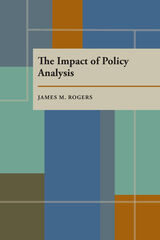
Government agencies spend billions of dollars each year for policy analysis with the expectation that improved policy will follow. Although civil servants conduct some analysis themselves, more frequently they contract with research organizations to assess the probable consequences of new social policies and to answer other policy questions.
Jams M. Rogers develops a theory that explains and predicts the impact of policy analysis. He illustrates his theory through welfare reform, where policy analysis is caught in political warfare and has little chance to improve actual policy.
During the 1960s and 1970s over $108 million was spent on four unprecedented social scientific experiments to test the effectiveness of a major proposal to reform the welfare system. Now out of favor, the negative income tax was thn considered to be an appealing alternative to welfare. Starting in New Jersey and Pennsylvania during the Johnson administration, the experimental research continued through Carter's term and helped to keep reform proposal and research organizations alive. This book examines the results of these experiments and their effect on Carter's reform attempt—the Program for Better Jobs and Income.
One of the author's main conclusions concerns the role of value conflict. If there is strong disagreement within society over the goals of policy, analysis will seldom change the minds of decision makers or influence policy. Policy analysis is more likely to influence thinking and policy if the issue involves low conflict.
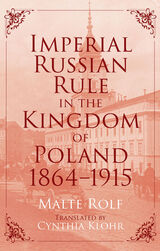
After crushing the Polish Uprising in 1863–1864, Russia established a new system of administration and control. Imperial Russian Rule in the Kingdom of Poland, 1864–1915 investigates in detail the imperial bureaucracy’s highly variable relationship with Polish society over the next half century. It portrays the personnel and policies of Russian domination and describes the numerous layers of conflict and cooperation between the Tsarist officialdom and the local population. Presenting case studies of both modes of conflict and cooperation, Malte Rolf replaces the old, unambiguous “freedom-loving Poles vs. oppressive Russians” narrative with a more nuanced account and does justice to the complexity and diversity of encounters among Poles, Jews, and Russians in this contested geopolitical space. At the same time, he highlights the process of “provincializing the center,” the process by which the erosion of imperial rule in the Polish Kingdom facilitated the demise of the Romanov dynasty itself.
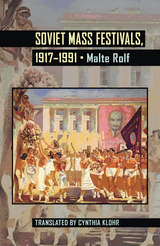
Mass festivals were a trademark of twentieth-century authoritarianism, as seen in fascist Italy, Nazi Germany, and elsewhere. But nowhere was this phenomenon more prevalent than in the Soviet Union. Despite being a dominant feature of Soviet culture, these public spectacles have been largely overlooked as objects of study by historians.
Originally published in German, Malte Rolf’s highly acclaimed work examines the creation and perpetuation of large-scale celebrations such as May Day, the anniversary of the October Revolution, Harvest Day, and others throughout the Soviet era. He chronicles the overt political agendas, public displays of power, forced participation, and widespread use of these events in the Soviet drive to eradicate existing cultural norms and replace them with new icons of Soviet ideology. Rolf shows how the new Red Calendar became an essential tool in redefining celebrations in the Soviet Union.
Rolf traces the roots of Soviet mass festivals in disparate multiethnic celebrations, protests, and street marches during the late imperial era. He then contrasts these with postrevolutionary events that sought to dissolve ethnic rituals and unify the masses. By the end of the civil war, the Bolsheviks had a well-defined calendar of events and began to dictate the forms of public celebration in accordance with party rhetoric. In distant regions, organizers attempted to follow the models of Moscow and Leningrad, despite budgetary constraints and local resistance. In many outlying areas a hybridization of events developed as local customs merged with party mandates. People often made use of official holidays to adopt their own agendas, yet continued to follow the line of an official Soviet culture. Mass festivals were thus an important tool for Sovietizing the cultural landscape.
After the Second World War, the Soviets exported their festival culture to Eastern Europe and the Baltic states, which resulted in a melding of Soviet guidelines with national cultural forms. Additionally, Rolf compares and contrasts Soviet mass spectacles with mass events in Italy, Germany, and the United States to reveal their similar influence despite divergent political, cultural, and social systems.
In the Soviet Union, mass festivals continued through the time of Khrushchev, Brezhnev, and up until perestroika, despite their fading political impact. Rolf finds that in the end, Soviet celebrations became effectively ingrained in Russia’s post-Soviet national memory, which ironically was the intent of the original festival planners.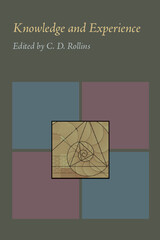
Contributors include: Hector-Neri Castañeda, Newton Garver, Arthur N. Prior, John R. Searle, G. J. Warnock, with commentary by Paul Benacerraf, V. C. Chappell, Carl Ginet, F. A. Siegler, James F. Thomson, Zeno Vendler, and Paul Ziff.
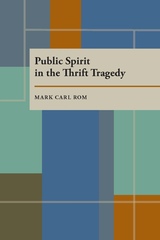
Winner of the Harold Lasswell Award of the American Political Science Association
The FSFIC failed spectacularly during the 1980s, costing taxpayers an estimated $200 billion. In this award-winning analysis, Rom examines the political causes of this “thrift tragedy.” He directly confronts-and rejects-the dominant scholarly “public choice” view that public officials were motivated mainly be self-interest. Instead, Rom argues that politicians and bureaucrats generally acted in the “public spirit” by attempting to obtain the common interest as they saw it. Using new evidence and innovative methods, Rom demonstrates that FSLIC's failure unfolded because of commitments that officials had made in the past and their uncertainties about how to fulfill these obligations in the future.

Allegheny City, known today as Pittsburgh’s North Side, was the third-largest city in Pennsylvania when it was controversially annexed by the City of Pittsburgh in 1907. Founded in 1787 as a reserve land tract for Revolutionary War veterans in compensation for their service, it quickly evolved into a thriving urban center with its own character, industry, and accomplished residents. Among those to inhabit the area, which came to be known affectionately as “The Ward,” were Andrew Carnegie, Mary Cassatt, Gertrude Stein, Stephen Foster, and Martha Graham. Once a station along the underground railroad, home to the first wire suspension bridge, and host to the first World Series, the North Side is now the site of Heinz Field, PNC Park, the Andy Warhol Museum, the National Aviary, and world headquarters for corporations such as Alcoa and the H. J. Heinz Company.
Dan Rooney, longtime North Side resident, joins local historian Carol Peterson in creating this highly engaging history of the cultural, industrial, and architectural achievements of Allegheny City from its humble beginnings until the present day. The authors cover the history of the city from its origins as a simple colonial outpost and agricultural center to its rapid emergence alongside Pittsburgh as one of the most important industrial cities in the world and an engine of the American economy. They explore the life of its people in this journey as they experienced war and peace, economic boom and bust, great poverty and wealth—the challenges and opportunities that fused them into a strong and durable community, ready for whatever the future holds. Supplemented by historic and contemporary photos, the authors take the reader on a fascinating and often surprising street-level tour of this colorful, vibrant, and proud place.
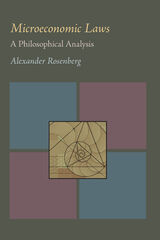
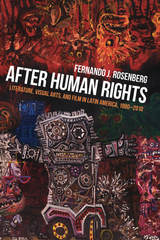
Rosenberg argues that since the topics of emancipation, identity, and revolution no longer define social concerns, Latin American artistic production is now situated at a point where the logic and conditions of marketization intersect with the notion of rights through which subjects define themselves politically. Rosenberg grounds his study in discussions of literature, film, and visual art (novels of political refoundations, fictions of truth and reconciliation, visual arts based on cases of disappearance, films about police violence, artistic collaborations with police forces, and judicial documentaries). In doing so, he provides a highly original examination of the paradoxical demands on current artistic works to produce both capital value and foster human dignity.
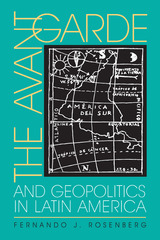
The Avant-Garde and Geopolitics in Latin America examines the canonical Latin American avant-garde texts of the 1920s and 1930s in novels, travel writing, journalism, and poetry, and presents them in a new light as formulators of modern Western culture and precursors of global culture. Particular focus is placed on the work of Roberto Arlt and Mário de Andrade as exemplars of the movement.
Fernando J. Rosenberg provides a theoretical historiography of Latin American literature and the role that modernity and avant-gardism played in it. He finds significant parallels between the cultural battles of the interwar years in Latin America and current debates over the role of the peripheral nation-state within the culture of globalization. Rosenberg establishes that the Latin American avant-garde evolved on its own terms, in polemic dialogue with the European movements, critiquing modernity itself and developing a global geopolitical awareness. In the process these writers created a bridge between postcolonial and postmodern culture, forming a distinct movement that continues its influence today.

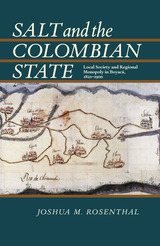
In republican Colombia, salt became an important source of revenue not just to individuals, but to the state, which levied taxes on it and in some cases controlled and profited from its production. The salt trade consistently accounted for roughly ten percent of government income.
In the town of la Salina de Chita, in Boyacá province, thermal springs offered vast amounts of salt, and its procurement and distribution was placed under the jurisdiction of the Ministry of Finance. Focusing his study on la Salina, Joshua M. Rosenthal presents a fascinating glimpse into the workings of the early Colombian state, its institutions, and their interactions with local citizens during this formative period. Although historians have cited the state’s weakness, and in many cases, its absence in local affairs, Rosenthal counters these assumptions by documenting the primary role the state held in administering contracts, inspections, land rights, labor, and trade in la Salina, and contends that this was not an isolated incident. He also uncovers the frequent interaction between the state and local residents, who used the state’s liberal rhetoric to gain personal economic advantage.
Seen through the lens of the administration of la Salina’s salt works, Rosenthal provides a firsthand account of the role of local institutions and fiscal management in the larger process of state building. His study offers new perspectives on the complex network of republican Colombia’s political culture, and its involvement in provincial life across the nation.
READERS
Browse our collection.
PUBLISHERS
See BiblioVault's publisher services.
STUDENT SERVICES
Files for college accessibility offices.
UChicago Accessibility Resources
home | accessibility | search | about | contact us
BiblioVault ® 2001 - 2024
The University of Chicago Press









